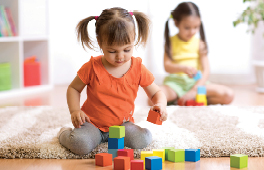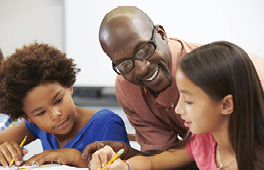Preschool with Ace and Christi
GRADE R (5-6 YEARS OLD)
Lay a solid foundation on which to build the rest of a child’s education. This full-year Grade R programme features a complete scope and sequence of concepts and skills needed to prepare children to be ready to read.
This Preschool (Reading Readiness) programme complements the ABCs Learning-to-Read programme. There are 12 colour PACEs in each of the core subjects - Word Building, Math, English, Social Studies and Science.
- 4 daily instruction manuals
- Display cards
- Number train cards
- Gold stars
- Bible stickers
- Coordination development exercises & tests
- Growth chart
- Progress reports
- Preschool song CD
- Reading Systems Procedures manual
- Word Building PACEs
- Math PACEs
- English PACEs
- Social Studies PACEs
- Science PACEs
- Preschool report card (available in single or pack of 20)
ABCs with Ace and Christi
GRADE 1 (6-7 YEARS OLD)
A multisensory, phonetic, learning-to-read programme designed to prepare a child for the individualised Learning-to-Read programme. The programme encourages verbal and written communication through the use of games, songs, stories, poems and many other fun activities that young learners will enjoy.
- ABCs with Ace and Christi Reading Readiness Test (10)
- 2 daily instructional manuals
- ABCs audio song CD which includes alphabet sounds, the alphabet sequence song and animal songs
- 35 display cards – letter sounds
- 35 tactile and kinetic (T and Kl) cards
- ABCs diploma (10)
- ABCs review manual
- Progress reports (10)
- Post Tests including Test Keys (10)
PACEs are not included in the kit and must be ordered separately:
- ABCs colouring sheets
- ABCs goal cards
- ABCs phonic flash cards
- Review PACE and score key
- Animal Science PACEs 1001 -1012
- Bible Reading PACEs 1001 -1012
- Word Building PACEs 1001 -1012
- Math PACEs 1001-1012
- English PACEs 1001-1012
- Science PACES 1001-1012
- Social Studies PACEs 1001-1012
- Progress report card Grade 1 (available in single or pack of 20)
Math
GRADES 1-3 (7-9 YEARS OLD)
Basic Math skills are introduced, developed, mastered, reviewed and consistently reinforced in a variety of imaginative ways throughout the material and levels from Grade 1 to Grade 3.
Core competencies
- Numbers in symbol and name from zero to ten
- Counting from zero to one hundred
- Simple addition and subtraction
Note: The first three PACEs of this level are completed in conjunction with the ABCs learning-to-read programme.
The learner is introduced to:
- The number line
- Measurement of time, temperature and volume
- SA money values
In Grade 2, the learner:
- Counts by twos, fives, and tens
- Identifies odd and even numbers
- Learns carrying and borrowing
- Counts by very large numbers
- Tells time
- Recognises geometric shapes
The curriculum is extended as learners prepare for the intermediate phase.
- Expands basic addition and subtraction skills
- Is introduced to two and three-digit addition and subtraction
- Learns Roman numerals
- Learns word problems
- Learns measurements of weight, volume and length
English
GRADES 1-3 (7-9 YEARS OLD)
The English curriculum develops optimal language skills through its balanced scope and sequence. Each level moves learners step by step, continually building on traditional grammar and usage concepts. Ongoing review and testing provide regular evaluation of learners' progress in thinking, reading and writing skills. Each unit integrates Biblical and character-building principles.
- Develop language, reading and writing skills.
- Ensure reading comprehension and subject mastery as learners advance.
- Build confidence and capability in the use of English, both written and spoken.
- Encourage development of research and observational skills.
- Concentrate on vocabulary development and improvement.
- Instruct in the value of dictionary usage.
- Enhance the spiritual and intellectual development of learners.
- Develop higher thinking skills.
Core competencies
The English PACEs match what is learned phonetically in the Word Building PACEs.
All the phonics are reviewed. Vowels are identified. Learners learn to identify, read and write different types of sentences such as telling, asking and exclamatory sentences. They learn when to use capitals and the correct end punctuation for the different types of sentences, and when and how to use quotation marks and apostrophes. Compound words, similarities and opposites are learned. They can read and write the days of the week, months and dates. They learn to recognise and write abbreviations. Other parts of speech are also introduced such as prepositions, verbs and adjectives. They read paragraphs for comprehension. Rhyming words and poetry are introduced. They learn to write friendly letters. Homonyms are introduced. Word Building continues to be a part of learning the English language. Print handwriting is practised.
Phonics review continues. Review of vowels, consonants and the various forms of punctuation. The different types of sentences are expanded - imperative, interrogative and exclamatory. Further expansion of parts of speech such as nouns: common/proper; singular/plural; compound nouns. Other parts of speech are developed, viz. pronouns, adjectives, prepositions and types of verbs: acting, state of being. More antonyms, synonyms and homonyms are learned. Confusing words such to/two/too, is/are, was/were, has/have, and does/do, confusing pairs such as a/an, learn/teach, sit/set, let/leave, their/there, its/it's and can/ may are identified. Learners read and write sentences and paragraphs and learn how to make notes, design a poster, and read and write dialogues.
In Grade 3 learners are taught how to write their letters according to the SA cursive writing fonts.
Afrikaans
GRADES 2-4 (8-10 YEARS OLD)
Establish a good foundation with Afrikaans. New vocabulary is practiced whilst playing fun board games, as well as listening and speaking along with DVDs.
CAPS - compliant First Additional Language Programme.
A language cannot be learnt if it is not heard and spoken The educator as facilitator is essential so it is therefore recommended that learners be lock-stepped, per grade, according to their level of language proficiency. It is recommended that learners start the Afrikaans Phonetics Programme in Grade 2.
Core competencies
Phonetics Programme consists of:
- 12 phonetics modules
- 12 corresponding answer keys
- 12 sets of board games
- 12 sets of flashcards
- 12 DVDs
STARTER KIT
Using the STARTER KIT with the teacher:
- Learners are introduced to the letters of the alphabet phonetically.
- Learners hear the sounds, see the images, and practice saying the sounds.
- Learners progress onto blending sounds into words and soon they are reading!
The remainder of the phonetics programme facilitates enjoyable learning by reading and writing in the colourful PACEs. New vocabulary is practiced whilst playing fun board games, as well as listening and speaking along with videos.
It is recommended that school has at least one starter kit. STARTER KIT includes:
- DVD (with all 40 sounds and charts with the correct pronounciation)
- Teacher's guide
- Alphabet Flashcards A-Z and the double sound and diphthongs.
Each level of the programme includes:
- 12 modules
- 12 answer keys
- 4 DVDs per level (grade) - Each DVD contains three e-books of videos, vocabulary flashcards, songs, and more for EVERY lesson!
Word Building
GRADES 1-3 (7-9 YEARS OLD)
Word Building is a vocabulary-controlled study of selected words, root words, prefixes and suffixes, traditionally called spelling. Word Building is designed to build vocabulary, spelling skills as well as reading and writing. Children should be able to read even unfamiliar words and material when they have completed this programme.
Core competencies
This course provides activities that accompany the ABCs with Ace and Christi learning-to-read programme. These PACEs provide the foundational phonetic skills needed for reading and writing mastery. Children learn 35 letter sounds and 11 additional blends and diphthongs that are basic to all reading. Children should be able to read even unfamiliar words and material when they have completed this programme.
Word Building increases learners' vocabulary bases and reinforces their confidence and capabilities in spelling. Earlier levels expand the learners' grasp of phonetic sounds and combinations. Each level presents appropriate spelling rules and their exceptions by both statement and drill. This course begins with simple words and progresses through to more complex words, teaching the relationships between words and spelling patterns.
Literature and Creative Writing
GRADE 3
The A.C.E. Literature and Creative Writing course is designed to nurture a passion for reading and creative writing. Animated cartoon characters Ace, Christi and their friends, lead learners through foundational concepts of writing.
Core competencies
Learners are encouraged to visualise, use their imagination and give creative responses to questions following one-page stories. Reading becomes a deeper learning experience, and writing blossoms into a comfortable skill. Each PACE provides practice in handwriting and speed reading.
Social Studies
GRADES 1-3 (7-9 YEARS OLD)
Social Studies (Sciences) is the study of people, their activities, customs and institutions in relationship to other people. Social Studies includes history, economics, geography and government.
This course looks at world history and cultures from the perspective that God is the Designer, Creator and Controller of the universe.
Core competencies
Level 1 introduces young learners to the basic principles of life. They learn to recognise and are challenged and motivated to do what is right. They also learn to be kind, to share, and to be obedient to rules and laws. This level requires reading characterbuilding stories and answering questions.
At this level the material builds visual discrimination and vocabulary, and teaches about the nations and some of the great political and Godly leaders of the past.
This level covers communication, conservation, communities, agriculture, geography, colonisation and slavery. This approach to history encourages learners to love and respect their country. The heroes and heroines to whom they are introduced provide role models representing ideals and aspirations for which learners can strive.
Science
GRADES 1-3 (7-9 YEARS OLD)
Science is knowledge based on observed facts and tested truths, presented in an orderly fashion. Science includes the study of plants, animals, biology, physical science, chemistry and physics.
The curriculum for foundation phase Science covers concepts and principles which are expanded throughout all levels. The curriculum takes learners' natural curiosity about their physical environment and helps them build a solid foundation upon Biblical principles.
Core competencies
This course material presents young learners with the facts of Creation as presented in the Bible. They learn about the human body as well as concepts of health care and hygiene. Animal Science is a separate section in the curriculum.
This level sets forth the days of Creation and what was created on each day. It also demonstrates how various plants and animals function in today's world.
This curriculum addresses the life cycles of animals and plants. Learners will learn about the effects of solar bodies on the earth. Geological changes after the Flood, jungles and hot lands, tundra and cold lands, volcanoes and earthquakes raise the natural curiosity of students. All this and much more makes this an exciting learning experience.
Bible Reading
GRADES 1-3 (7-9 YEARS OLD)
Bible Reading reinforces reading skills and exposes young learners to God’s Word. Each level of this series contains 12 PACEs that concentrate on reading the Bible and comprehending many of its principles.
Core competencies
The PACEs feature vividly coloured picture story cards to be used in conjunction with the character-building Bible stories which are a specific feature of the ABCs with Ace and Christi Learning-to-Read programme. A variety of activities give attention to development of the small motor muscles, eye-hand coordination, and visual discrimination.
Learners read the Book of John. As they read, they are also expected to answer questions about God's Word. In addition, they learn the books of the New Testament in order. Honourable character traits and dealing with relationships are emphasised. Learners explore the concept of relating to God through understanding of the Bible.
Learners become familiar with the Book of Matthew while learning the books of the Old Testament in order. There is constant review of the Old Testament books and practice in recognising them.
Animal Science
GRADES 1-2 (7-8 YEARS OLD)
Children love to learn about animals. The Animal Science programme encourages an interest in their habitats, special features and physical characteristics. It takes young learners on an adventure where they "meet" the members of an exciting animal family each time they open the cover of a new PACE. They learn about the animals' habitats, ranges, physical characteristics and special features.
Core competencies
Grade 1 Animal Science is a welcome companion to the ABCs with Ace and Christi Learning-to-Read programme. It incorporates, in PACE form, the picture story cards and animal stories used to illustrate all the alphabet sounds. Also included are a variety of activities to develop the small motor muscles, hand-eye coordination, and visual discrimination.
At this level, each PACE concentrates on a specific species of animal. Learners learn about sheep, dogs, horses, cats, cattle, rabbits, rodents, poultry, unusual birds, spiders, snakes, toads and frogs.
















